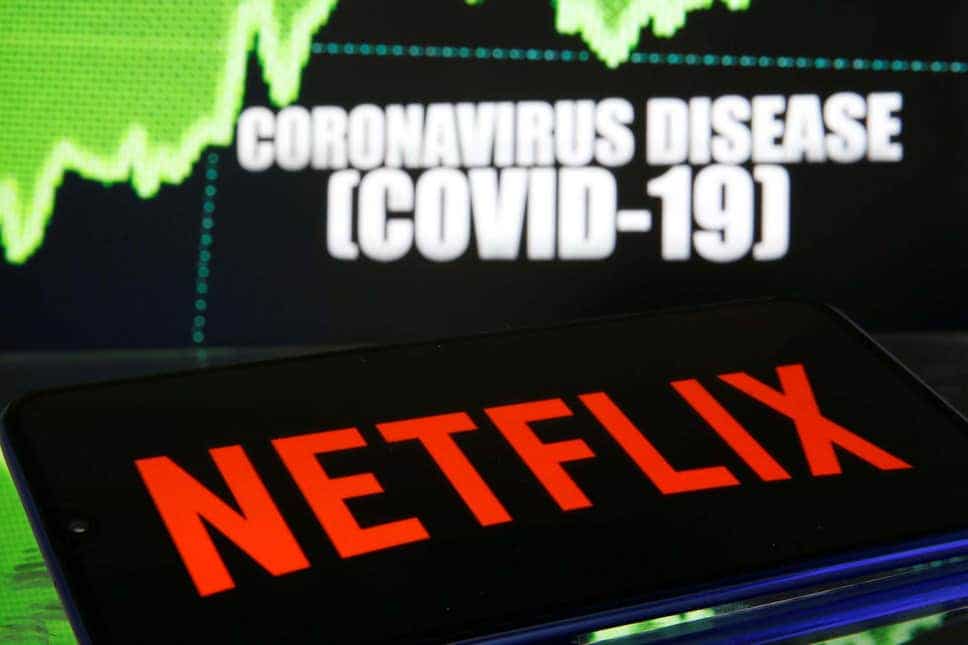In a time when Netflix video quality is tied to one’s quality of life, both YouTube and Netflix have decided to compromise video quality. This is in an effort to prioritize data for work-related activities only. That’s because the Internet might literally crash due to the increased demand throughout Europe. This is truly a time that calls into question the sustainability and capacity of our Internet infrastructure and systems.
According to a joint statement by these streaming giants, this restriction will continue for the next 30 days. These measures will help ease European Netflix traffic by up to 25%. All while maintaining a solid service to its members.
A Google spokesperson said that YouTube intends to collaborate with network companies and member state governments to prevent unnecessary strain on the system.
These changes come after EU officials pleaded with the public to cease playing content in high definition quality to avoid breaking the Internet. But, as the COVID-19 virus continues to spread, so does the number of people who have to turn to streaming as the best (and sometimes only) way to keep busy during this difficult time.
This increased demand and ensuing strain mean that there’s a genuine concern for its effects on the system. We have never tested its capacity in this way before.
Can the Internet Handle the Demand?
According to Thierry Brenton, a European Commissioner, a network of internet providers, telecom operators and streaming platforms have to work together to ensure that the Internet is able to continue operating. This is while the COVID-19 virus continues its spread around the world. It’s important to note that the EU internal market alone consists of well over 450 million people.
A networking equipment company called Sandvine released a report back in 2019 which showed that video content makes up for well over 60% of all the data that’s utilized on the Internet. Netflix eats up 12% of that data traffic while Google’s YouTube accounts for another 12%.
A spokesperson from Netflix expressed that some users won’t see a change in their video quality. Others will see a perceptible change.
An Amazon spokesperson expressed that its Prime Video service has reduced streaming bitrates with a view to collaborate with authorities in order to further alleviate network congestion.
The commission also expressed that despite the spike in Internet usage, this hasn’t led to any adverse effects on content quality. According to EU officials, there is a plan to cooperate with the regulator in order to oversee bloc electronic communications.
They are trying to create a social reporting mechanism that’s meant to observe Internet traffic. This way, they can provide a timely and effective response to any issues in capacity that may arise.
How Are Networks Responding?
Telecom operators, on the other hand, have also made a commitment to encourage users to make the switch from high definition to standard definition quality of streaming.
Engineers are at the front lines working to create and handle new traffic patterns according to standard network operations. These operators are in full support of the state’s desire to curb sudden and unexpected crashes while maintaining strong networks.
According to the chief technology and information officer of BT Group, Howard Watson, this operator is more than ready to handle the demand from the UK public on its network. The network would be able to handle a steady increase in data demand. This is all while maintaining the same capacity and quality as it does now.
Meanwhile, the CEO of Verizon had similar sentiments when asked about the impact of this pandemic on his network. According to Watson, they expect to maintain smooth operations whether the demand stays the same or increases. But the network is pretty steady at the moment and isn’t experiencing any significant congestion.
He maintains that they’ve built a solid network. This network can handle pretty much anything thrown at it. This is despite seeing a 30% increase in the use of VPNs and a 75% increase in gaming traffic in just one week. Still, there’s no denying that there’s an unprecedented amount of pressure placed on Internet infrastructure right now.
Attention: Read before you continue
Governments and ISPs across the world monitor their users online activities. If found streaming or browsing content on your Fire TV Stick, mobile or PC, you could get into serious trouble.
Currently, the following information is visible:
- Your IP:
- Your Country:
- Your City:
- Your ISP:
If this is your real information, you need to use a VPN to protect your identity.
We strongly recommend you to get a good VPN and hide your identity so that your online experience doesn’t take a bad turn.
We use IPVanish which is the fastest and most secure VPN in the industry. It is very easy to install on any device including Amazon Fire TV Stick. Also, it comes with a 30-day money-back guarantee. If you don’t like their service, you can always ask for a refund. IPVanish also runs a limited time offer where you can save 74% on your VPN and they allow you to use one account on unlimited devices.
This is a flash sale that can expire at any time!
How to Avoid Compromised Netflix Video Quality
Here’s how to choose a low latency server on IPVanish:
1. Click Server List on the left side of the screen.
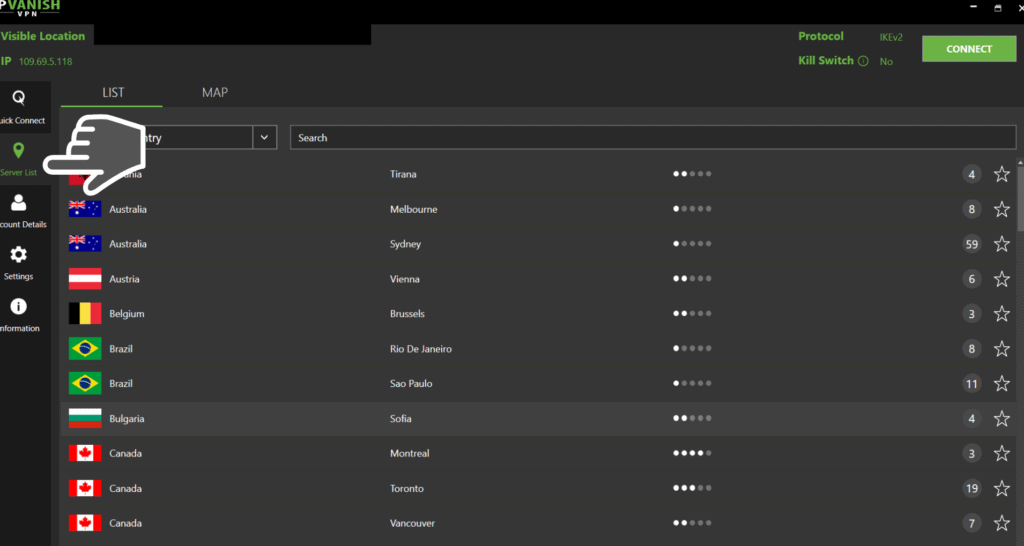
2. Click List tab and choose the Ping option.
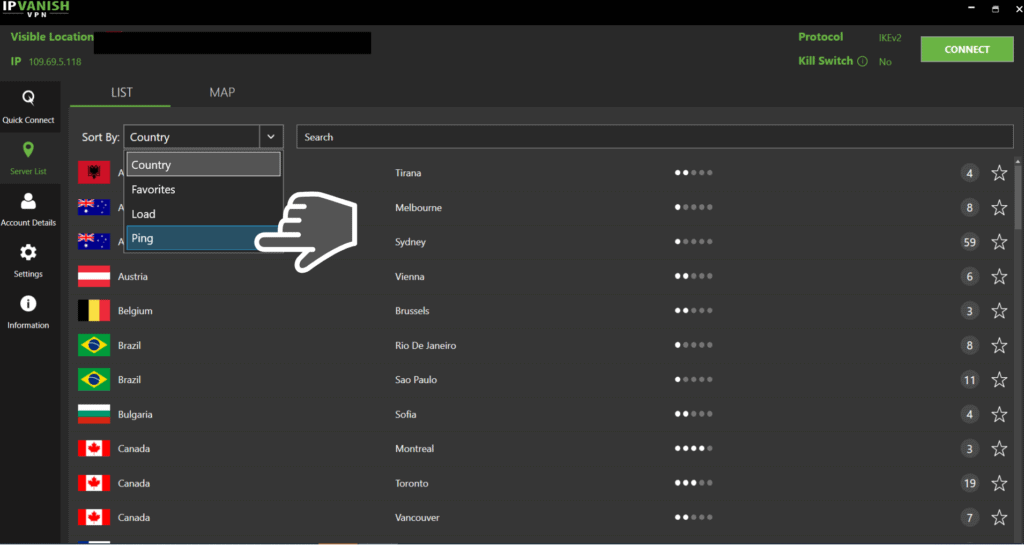
3. Check the available servers and find the lowest ping and load combination.
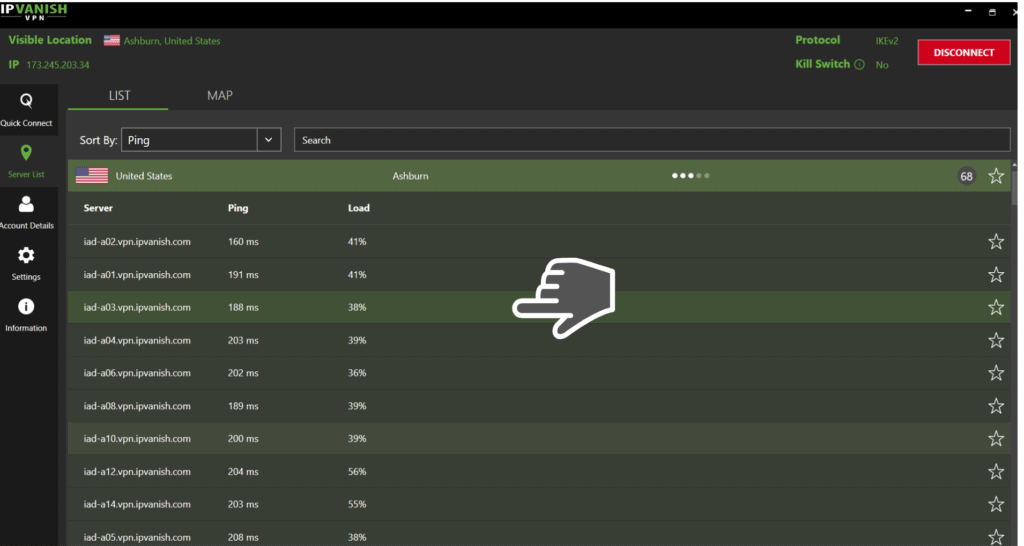
4. Go back to the Quick Connect screen.
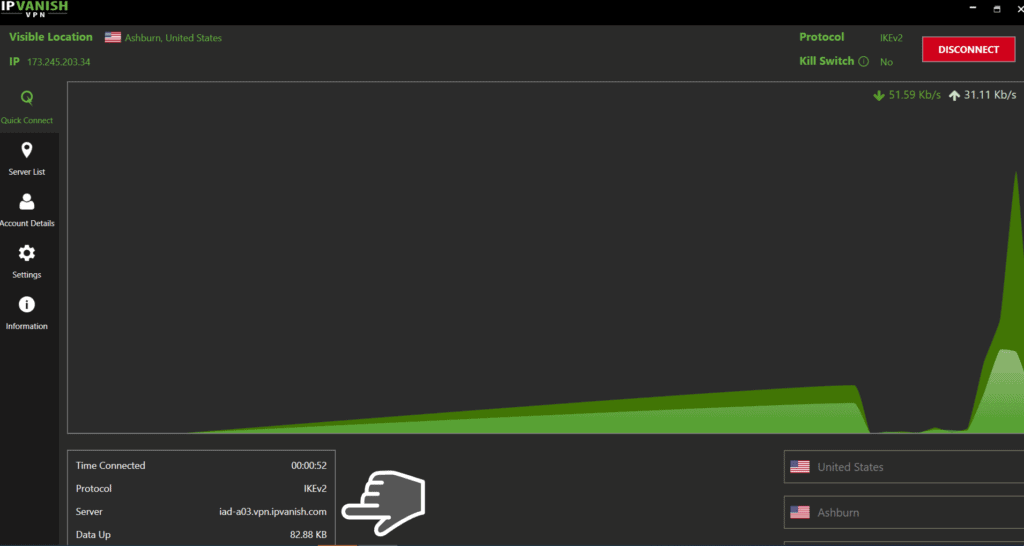
5. Check the red disconnect button if it’s there to confirm you have a connection.
What About Facebook?
Last Wednesday, Facebook announced that they’re already feeling the increase in demand on their resources. According to Facebook CEO Mark Zuckerberg, the platform is blowing up like never before. This is because people who would ordinarily be at work or school are now forced to stay at home and use the Internet as a means to keep busy (and sane!).
Zuckerberg expressed that this level of demand even surpasses the increase in demand shown on New Year’s Eve. The platform has doubled engagement on Facebook and WhatsApp Messenger particularly when it comes to video and voice calls.
So, in addition to the pressure exerted by these functions, additional video streaming is also putting a strain on Internet infrastructure. Just think about it. Millions and possibly billions of people are at home video conferencing, live-streaming classes, and online gaming. This is all while more universities, schools and businesses temporarily close down.
Live streaming is by far the most demanding of all these activities on the infrastructure of the internet. This is especially when you consider buffering, loading, and the chopping up of content into different pieces.
Conclusion
There are concerns about the Internet’s ability to handle this increase in demand. But measures such as compromising Netflix video quality are expected to keep things on an even keel.
After all, we can’t expect people to away from the Internet. This is considering the need for social distancing and the fact that it’s necessary to avoid the spread of the virus.
The most important thing is for people to use the Internet carefully without crashing the Internet. If this happens, we all know that all hell would probably break loose!
Have you experienced a decrease in Netflix video quality yet? Let us know in the comments section below!
